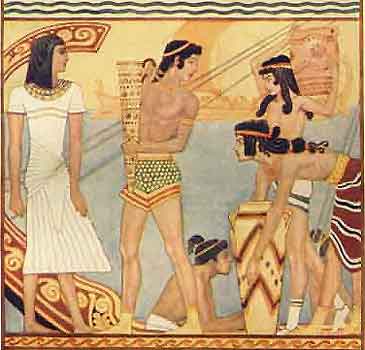
Review:
Joanna Griffiths
Sunday February 10, 2002
The Observer
Roy Porter ends his short history of madness with a teasing question: 'Is Folly jingling its bells again?' More people 'are said to be suffering - indeed claiming to be suffering - from a proliferation of psychiatric syndromes, in a "victim culture" in which benefits may appear to lie in buying into psychiatric paradigms.' Madness is no longer the domain of the witch, the religious seer, or the poetic genius; it is now - as neurosis, trauma, anxiety - the domain of nearly everybody. Those who profess themselves to be unencumbered by mental fragility are seen to be as untrustworthy as the gibbering lunatics of Bedlam, who claimed they were sane.
Porter is no stranger to the mad, having previously written and edited various books on the theme, including the wonderfully cluttered Mind-Forg'd Manacles: A History of Madness in England from the Restoration to the Regency. In Madness: A Brief History he widens the historical remit - to pretty much the Whole of Time - and shortens the book. The result is not quite, as Oliver Sacks suggests in the puff on the back, 'scarcely short of a miracle', but is rather the thrilling rigour of Mind-Forg'd Manacles in expansive holiday-mode - a montage of Porter's favourite lunatics, poets, psychiatrists and phrase-makers.
Porter moves from the 'rational and naturalistic thinking about madness developed by Graeco-Roman philosophers and doctors' to the Christian interpretation of madness as the rage of the divinely inspired or demonically possessed.
He dallies briefly in the lurid realms of medieval witch-hunting, before arriving in the bursting dawn of the Enlightenment, where 'religious madness' was 'pathologised' and understood in medical terms. After ploughing through literary and artistic presentations of insanity, Porter turns to the vogue for institutions, dips briefly into the eighteenth-century cultural fascination with Bedlam, and emerges to discuss the rise of psychiatry and prescription drugs.
Cleverly, Porter suggests that any attempt to define madness is doomed to failure, recycling a favourite quotation from Polonius: to 'define true madness,/ What is't but to be nothing else but mad?' This dispels any need for quibbling over definitions and diagnoses, and allows him to move into a vivid series of case studies, of heroes and villains on both sides of the straitjacket.
Robert Burton is given his due: a mournful seventeenth-century don, who spent his life writing and re-writing The Anatomy of Melancholy , an obsessive account of the depressive disposition, inspired by a sense that 'to live in this sordid, base world, surrounded by despots, tyrants, misers, thieves, slanderers, adulterers, and whole broods of knaves and fools was a melancholy matter'.
William Blake enters for an unsurprising cameo. Blake dreamed that the poet William Cowper - hardly noted for his steely grip on reality - came to him and pleaded: 'O that I were insane always... Can you not make me truly insane?... You retain health and yet are as mad as any of us all - over us all.'
Madness recurs, in its innumerable manifestations, but the understanding of madness is conditioned by time and place. A few theories are rejected: Foucault's whispering theory of the 'great confinement' - incarceration as state power games, not medicine - is dismissed as 'simplistic and over-generalised', disproved by the example of England, where 'not until 1808 was an Act of Parliament passed even permitting the use of public funds for asylums'. Freud is neatly summarised as a 'materialist', 'lionised by the avant-garde as the conquistador of the unconscious'. Porter dismisses retrospective psychoanalysis, suggesting in the case of the fourteenth-century mystic Margery Kempe that 'modern attempts to pin contemporary psychiatric labels on her' will flounder in the absence of a 'master key to Margery's mind'.
Porter appears generally to prefer the eccentric and raving to the experts who fastidiously chained, electric-shocked, doped or hypnotised their patients, depending on the medical consensus of the time.
Treatments nearly as strange as their recipients are held up for gentle ridicule: one of George III's doctors, Francis Willis, ran a Lincolnshire madhouse where the miracle cure lay in the compulsory wearing of 'black coats, white waistcoats, black silk breeches and stockings, and the head of each bien poudrée, frisée, and arrangée'.
Zooming energetically towards the present day, Porter suggests that the rich history of theoretical insights may have all been bluster to no real end: confusion remains. Clinics abound: treating eating disorders, psycho-social problems, sexual dysfunctions.
One generation's obsession with the modish necessity of psychoanalysis becomes the next generation's reliance on the seratonin-kick of Prozac. Mental hypochondria becomes conventional, as the 'idioms of the psychological and the psychiatric replace Christianity and humanism as the ways of making sense of self'.
But, despite the 'ship of fools' ending, Porter stops short of forecasting the decline of the West. His interest is less in commanding polemic, than in the extraordinary variety of attitudes to madness across the centuries.
Through the enthusiastic density of the preceding pages, Porter answers his own question: 'Folly' has never stopped jingling its bells, but we hear different tunes, depending on where we're standing in history.
delirdik ey halkım unutma bizi














